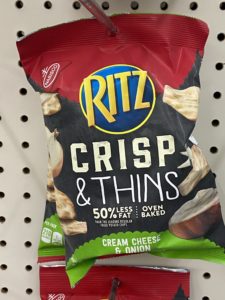Your name has been your name for as long as you’ve known you. At least that’s the case for most of us.between the ages of four and seven months, the neurons involved in name recognition kicked in, and you learned to recognize your own name. And so you learned the word or words that represent you.
What does this have to do with branding? Flash forward to adulthood, and “Jim” and “Karen” and “Mark” and “Hildegard” are not just random syllables. They’re signifiers of personhood and personality. Or as we say in branding, identity.
And that brings us to the brand naming conundrum: Does the name create the identity, or does the identity give meaning to the name? The answer: yes.
A name is a relatively small verbal unit. It can only convey so much. And contrary to the most earnest client aspirations, it can never tell the full story about a brand or product or service. It can suggest that story, but the experience of the brand (or product or service) is what invests the name with meaning.
On the flipside, a brand name is like shorthand. It’s a verbal label, an emblem. It stands for everything the brand represents, just like your name represents everything that makes you “you.”
Let’s go back to people names. If I described my friend “Fred” to you in detail, some of that explanation might stick. But chances are you would need to meet Fred in person to form an opinion of him, which you would then retroactively associate with his name. Your experience of my friend Fred is what gives unique meaning to his name. You might even know other Freds. But your specific knowledge of my friend gives the name Fred specific meaning in his case. It’s a contextual thing.
To take it a step further, think of an expression like “That’s so Fred.” That’s a person’s name acting as a brand in everyday speech. We’re able to take the attributes that make Fred “Fred” and apply them to someone or something else, just by using his name. This is something celebrities are fully aware of—and why they often legally protect their names.
That naming conundrum I mentioned? It’s not easily solved. And maybe it’s not supposed to be. But here’s what I know: People tend to learn more easily through experience than being told. Which is why the better you get to know someone, the more likely you are to remember his or her name.
Does this mean all names are just blank slates? No. Even coined names, which have no dictionary definition, cause our synapses to fire. The challenge is to make sure you’re activating synapses—as opposed to not activating them—with a brand name. Ultimately, how people perceive your brand is how they will understand its name. And somewhere in there, the name will come to represent the brand.














